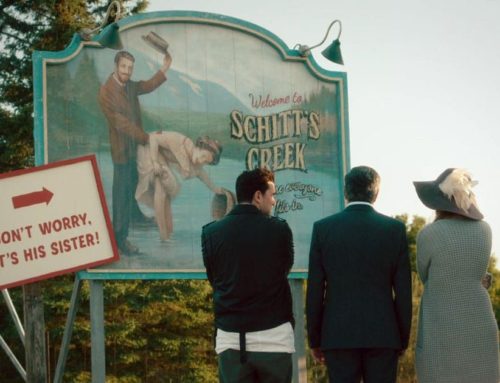There is more than one way to build a career as a composer—and that’s a beautiful thing. Yet there are some best practices and principles that show up consistently in the lives of successful composers.
Through nearly 200 interviews a number of habits have made themselves clear to me. Here are seven habits successful composers do that you can incorporate into your life and composition business today.
1. Recognize You Are A Business
There is a growing trend in higher education and amongst musicians to recognize the fact that we are all running businesses. Colleges and universities are increasing the music entrepreneurship courses they offer. Resources such as The iCadenza Creative Careers podcast, The Entrepreneurial Musician podcast, The Music Publishing Podcast, and my podcast—The Portfolio Composer—are helping shed light on this for tens of thousands of musicians.
And yet, there is still a lot of resistance to the idea.
Every composer needs to recognize that they are a business. It doesn’t matter what kind of music you write. If you earn money AT ALL from the music you write, you are a business! The IRS certainly thinks so, so you should as well.
Businesses exist to sell solutions. In some way, businesses sell a solution that meets a need, solves a problem, or provides entertainment.
Composers sell two things. First, we sell the service of writing music. We operate a service-based business. The common term for this service in the concert world is a commission. Ensembles or performers commission composers to write a piece of music for an ensemble or a performer. Media composers are often contracted to provide a score, but the idea is the same. Composers sell the service of writing music.
Second, we sell or lease the products of our music writing service. This can take many forms, but the most common include scores and recordings. After a composer writes a pieces of music it exists in some fixed form and the composer can sell or lease the music in that form. For a more detailed explanation of this idea read my previous posts, “The Business of Composing,” and “6 Reasons Your Music is an Asset.”
So what does it mean that you, as a composer, are a business? It means you need to treat yourself like one. Learn what businesses do and how they operate. Learn about marketing, finance, accounting. Learn the best practices of networking and communication.
Learn how to sell.
The most successful composers—and I’ve spoken to many—treat themselves like a business.
2. Build and Maintain a Network
In How to Be a Power Connecter: The 5+50+100 Rules for Turning Your Business into Profits Judy Robinett makes the startling claim that your network determines your net worth. The opportunities that become available to you are directly related to who your connections are.
The most successful composers know this and have developed a rich network of friends, peers, and acquaintances.
We would like to think that music is a meritocracy—that the most well-written music gets performed the most, or that the most deserving person gets opportunities. But it’s simply not true. The world doesn’t operate that way.
You can cultivate your network in a couple of ways. Here are some key points from Robinett’s book (which I encourage you to read—it’s my personal favorite book on networking):
- Show up. Go to where the people you want to meet and network with are. This means attending concerts, conferences, meet-ups, and festivals. It might also mean going to school. Virtual and online just doesn’t cut it. You need to be in the same room with people and look them in the eye.
- Help others. No one wants to be in some body else’s network merely as a resource to be tapped, and it becomes pretty clear when that’s the case. Go out of your way to help solve problems and make life easier for those you want to network with. Become valuable to other people in your niche of the music world.
- Stay connected. Does that person you met six years ago who just became a decision maker for that major studio/orchestra/fill-in-the-blank remember you? Are you still in their network? It takes a lot of work, but staying connected keeps your network vibrant. In fact, think of your network as a living thing and this activity feeds it and makes it strong.
Successful people also build and maintain a network to find and create opportunities. In a recent episode of The Entrepreneurial Musician, composer Jeff Nytch tells a story of how he created an incredible opportunity that included a large commission, an important premiere performance, and publicity with a national organization. And he did all this because he had relationships with people in key places. He created an opportunity because he had a network that he not only could pull on, but that he contributed to by adding value to those in the network. Listen to TEM130: Dr. Jeff Nytch on Art and Entrepreneurship Co-Existing, Your Single Most Important Asset as an Artist and His Brand New Book, The Entrepreneurial Muse to hear him tell the story.
3. Invest in Yourself and Your Business
The most successful composers invest in themselves by spending money on their personal development and the growth of their business.
You will NEVER be ready for your next step. You will NEVER know everything you need to know. The best you can do is to stay curious and take action to develop your skills and knowledge.
Investors judge the quality of an investment by its Return On Investment, or ROI. Basically, if you put $1 in are you going to get more than $1 out? Some things are impossible to quantify, but this is part of thinking like a business owner.
If you spend $250 on my Marketing for Composers class you will have the tools and knowledge necessary to get WAY more than $250 out of your next campaign to sell your music, lock in a commission, or build a consortium.
If you spend $40 to take a person who is in your network out to lunch that relationship may result in a future opportunity worth 100 times the price you paid for the meal.
If you spend $2,000 on a high-end sample library it will likely help you deliver the score you’re writing. That same score might help you secure your next scoring contract.
All those examples represent a positive ROI.
Here are a handful of ways you can invest in yourself:
- Commit a part of your budget to buy books.
- Hire a coach to help you gain clarity, choose goals, and move in the right direction without wasting time or money.
- Take an online class to fill in holes in your knowledge.
- Take people out to coffee or lunch to feed and grow your network.
- Buy the best computer, software, and equipment you can afford.
- Travel to and attend conferences, festivals, and concerts.
- Take a vacation.
You should ALWAYS use wisdom and good judgment when spending money. However, the most successful composers are not afraid to invest in their personal and business development.
I am not encouraging you to over-extend yourself or to go into debt. I am encouraging you to think of your growth as a person, as a composer, and as a business owner as investment for the future. To get anything out, you have to start by putting something in.
4. Develop a Routine
Successful people minimize whatever effort it takes to make decisions that don’t matter. They reserve their highest creative and mental capacity for the work that matters. Which, in the case of a composer, is to write music.
One of the lowest hanging fruits for boosting your creative time is to establish a routine. The most successful people in the world often do the same things, in the same order, at the same time of day, every day. They make a habit of living in a routine.
The self-help section of the bookstore is full of books written on the subject. Some of them are quite good. In fact, here’s a few:
- Daily Rituals: How Artists Work by Mason Currey
- The Miracle Morning: The Not-So-Obvious Secret Guaranteed to Transform Your Life by Hal Elrod
- Tools of Titans: The Tactics, Routines, and Habits of Billionaires, Icons, and World-Class Performers by Tim Ferriss
- Manage Your Day-to-Day: Build Your Routine, Find Your Focus, and Sharpen Your Creative Mind by Jocelyn K. Glei
- The Power of Consistency: Prosperity Mindset Training for Sales and Business Professionals by Weldon Long
One of the things I often work with my coaching clients on is to develop the habit of writing every day. Every. Single. Day.
And that’s just one aspect of a well-rounded routine. Your routine can and should include exercise, prayer or meditation, quality time with loved ones, and having some down time. More on the last idea in a bit.
Having a strong routine will help you avoid decision fatigue. Decision fatigue occurs after your brain has had to make many high-level decisions.
This is also why grocery stores put the sugary, high-carb snacks in the check out aisle. You just spent the last 30–45 minutes comparing prices, checking items off your grocery list, considering your upcoming menu, and deciding between the generic or name brand items on the shelf. By the time you get to the front of the store these decisions have exhausted your brain and your willpower is gone.
The candy bar is a temptation that promises to make you feel better, replace the energy you lost making all those choices, and always appears cheap (“I can afford an extra $1.25 for this.”). Don’t believe me? Read this NY Times article.
Successful people use routines to become and stay productive. They use routines to ensure that their creative time remains creative.
5. Read and Study
It’s likely that someone has already done what you want to do. Imagine if that person documented what they did, the mistakes they made, and the lessons they learned. Imagine that you could shortcut your learning process and avoid many of the same pitfalls that person encountered.
Wouldn’t you want that resource? I hope the answer is an unequivocal, “Yes!”
Then read a book.
It doesn’t matter if it’s a biography, non-fiction how-to, or even fiction. You can learn incredible lessons that will give you a head start and a leg up.
Books are often one of the most untapped resources we have available to us. There is more knowledge, experience, and how-to currently available in the pages of books than ever before in history. Are you taking advantage of it?
You want to learn how to network? How about this book?
What it means to be a business owner?
How to stay focused and productive?
How to increase your creativity?
In nearly every interview I do for The Portfolio Composer I ask the guests a series of questions I call The Lightning Round. One of the questions is a book recommendation. If you want to see which books some of the most successful composers actively writing music right now recommend, check out the show notes page of the TPC interviews.
The point is not to just read. The point is to grow. The most successful composers stay curious and are always learning.
Books are fantastic, but they’re not the only way to expand your possibilities and knowledge. Listen to podcasts, subscribe to magazines, watch informative YouTube videos, follow certain authors. I subscribe to Seth Godin’s blog and every day I get his latest post in my inbox.
Books have changed my world and helped me grow skills, find opportunities, and become a more developed human and citizen than I would have been able to otherwise.
6. Take Breaks
Humans need breaks. We literally cannot work all day. It doesn’t matter if you are composing or digging holes. Your brain and your body need some rest.
There is a current fascination with increasing productivity. Even this post gives some great advice on how to do more, become more, and do so with efficiency. Regardless, I am not trying to promote the cult of work.
We need breaks at different intervals based on the time frame. Here’s what I mean:
- Most of us cannot sustain focused work for even a full hour. Our brains need a reset. Check out this article on The Atlantic‘s website for an example. Some people even suggest only focusing for 20-25 minutes at a time. As a matter of fact, I am using this method, often called the Pomodoro Technique, as I write this. The least you need to do to have a break is to stand up from your desk and walk around a bit. Move your body and do anything but the work.
- For every 24 hour period your body and mind need to have a complete break for a significant chunk of the time. There is so much your body and brain do while you sleep it’s amazing. You NEED the break. In fact, getting the appropriate amount of sleep can help you become more creative and solve problems and it clears toxins out of your brain. If you’re struggling with how to write a certain passage in your current piece, sleep on it. Seriously.
- Every few days we need to just not work. This is not just a belief of the Abrahamic religions (Judaism, Christianity, and Islam). Other religions such as Buddhism, and other belief systems encourage days of rest, too. This is ancient wisdom and we should pay attention to it. You risk burning out if all you do is work. It’s ok, and even in your best interest, to take a day off every once in a while.
Beyond just taking a day off, I believe vacations are also beneficial for you as a composer. Vacations give you the opportunity to get away from it all. You can leave your computer, your email, your to do list, and all your stress and worry behind you. The benefits are numerous.
Successful composers know how to take time off. Throughout the day they take mini-breaks. Every few days they just take a day off, and once or twice a year they take a vacation where they don’t work for several days at a time. This is a key component of being successful.
7. Have a Clearly Defined Niche
In a conference room full of music educators, I heard composer Robert W. Smith say that a composer must be able to write equally well in any style. In the same breath he said that composers also need to choose one thing and do it exceedingly well.
He’s not wrong.
In the (nearly 200) interviews I have done with composers one thing has become clear: the most successful composers have a clearly defined niche.
It doesn’t matter if the composer writes for the stage or for film. For soloists or ensembles. For acoustic music or electronic. The most successful composers know who they are writing for and how to best serve those people.
This doesn’t mean that successful composers are not capable, or do not choose, to write in a variety of styles given the right opportunity. Instead, it means that the most successful composers build their careers by going a mile deep in one area.
Compare that to the composer who broadcasts to the world that he or she is a Jack- or Jill-of-all-styles. As far as I can see, the shotgun approach for building a career is not as effective as going long with a particular style, genre, medium, or ensemble.
Going a mile deep in one area allows the successful composer to build traction much more quickly than otherwise. The composer’s entire brand and marketing (website, business cards, conference attendance, etc.) are all in alignment. Once the composer has built a career it is much easier to branch out and widen into other areas of composition—because people are already listening.
This is a funny concept and can be difficult to wrap your head around. I get a lot of resistance from composers when I talk about it. In fact, some feel that it labels them and diminishes their ability to make great art by putting them into a neat and tidy box.
But the biggest problem we have as composers is to get people to pay attention to us. Time and attention are at a premium in our society. Why should people give their time and attention to your music?
If you can define who your audience is, and how you serve that audience, it makes it easier to:
- Speak to the right people. This is a marketing problem. You don’t want to spend time or money getting your music in front of people who aren’t interested in what you’re doing anyway.
- Build your 1,000 true fans. Kevin Kelly’s theory that we only need 1,000 people who are real fans of our art has yet to be proven wrong. Seth Godin refers to this as your tribe. These are the people who want to listen to the music you’re writing, attend your performances, buy your scores and recordings, and support your work.
- Clarify your goals, purpose, and process. After you can say who you’re writing for, and what it is you do for those people, you can clarify your mission and purpose. Why are you doing what you do? Why does your music matter? Doing this helps you set appropriate goals so you can do it well.
Pick just about any successful composer and we can see how they built their career by going a mile deep in one or two areas before branching out. Successful composers have a clearly defined niche.
There are more habits that successful composers practice, but these seven seem to be universal.
They are all relatively easy to incorporate into your life and business. Most of them only require a change in how you are thinking about things. It might only require a change in mindset.
If you’re unsure about this pick one of the seven and begin practicing it today. Try it on for the next two–three weeks. Then try on another.
Successful composers consider themselves a business, they work on their network, they invest in themselves and their business, they have routines, they read & study, they have times of rest, and they have a niche.






